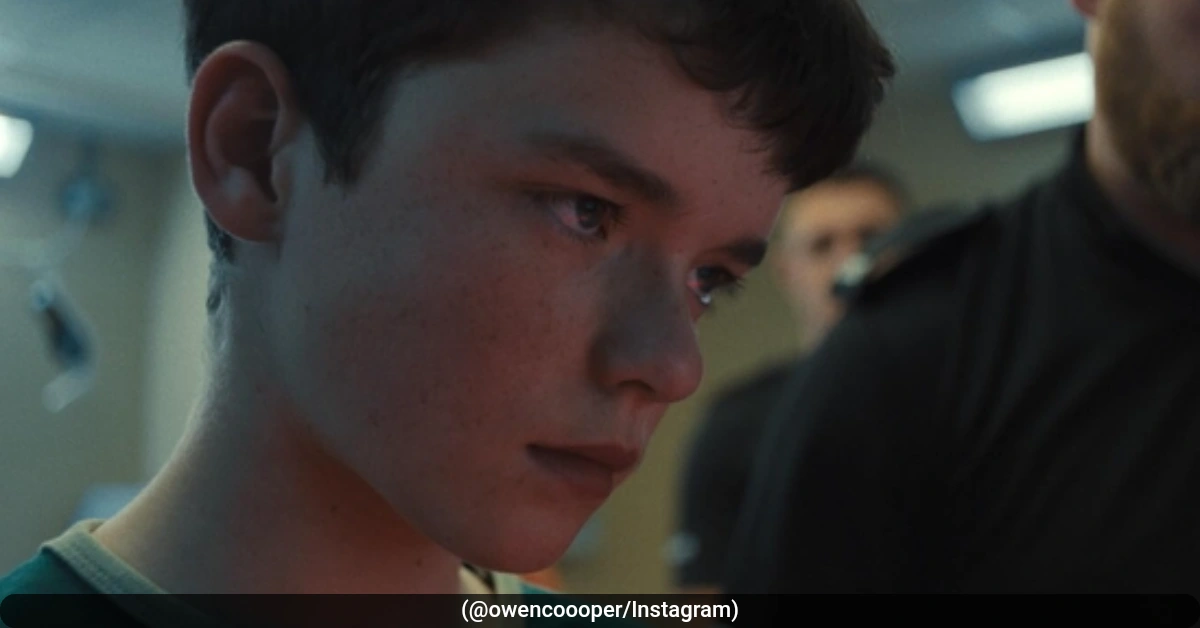A recent article in the Hindustan Times published on March 23, 2025 at 07:46 PM IST explores the use of the British slang term “nonce” in the final episode of the Netflix miniseries Adolescence. This article explains the meaning of the word, how it is used in the show, and the cultural context behind its usage in the United Kingdom.
Series Background Overview
The four-episode miniseries Adolescence made its debut on Netflix on March 13, 2025. The series tells the story of 13-year-old Jamie Miller, who is accused of murdering his classmate, Katie Leonard. Set over 13 months and unfolding in real time, the plot reveals the challenges and changes within Jamie’s family after the incident. In a significant turn of events in the final episode, the word “nonce” becomes a key element of the storyline when it is spray-painted on the side of Eddie Miller’s van, Jamie’s father. This detail adds to the tension and drives the narrative forward by emphasizing the community’s reaction to the crime.
Meaning of Nonce
The term “nonce” in British slang is defined simply as a person who commits a crime involving sex with a child. According to the Cambridge Dictionary, the word refers specifically to a paedophile. This harsh definition underlines the strong negative connotations attached to the term in the United Kingdom. Within the context of Adolescence, the appearance of the word in graffiti form on Eddie Miller’s van immediately signals the presence of stigma and disapproval toward the Miller family, even though the series carefully builds a narrative that resists blaming the parents entirely.
Native Language Usage
In a discussion with Today.com, a Yorkshire native named Emmeline Armitage explained that the term “nonce” has evolved over time in everyday British language. She noted that the word was once common in certain types of British humor, often seen in television shows from 10 to 15 years ago, such as The Inbetweeners. According to Armitage, the word “nonce” used to carry less weight and was even thrown around in a lighthearted manner. However, the current cultural climate—with greater awareness about the implications of the term—has increased its impact. Today, using the word is likely to invoke a stronger reaction due to the growing sensitivity toward issues of sexual abuse and exploitation.
Impact on Storyline
In the final episode of Adolescence, the use of the term “nonce” becomes more than just slang; it symbolizes the stigma attached to the Miller family following the crime. The graffiti on Eddie Miller’s van hints at the possibility that a younger individual might be responsible for the vandalism. This act adds another layer of complexity to the plot as it reflects the community’s way of assigning blame and shame.
Key points include:
- Character Reactions: The unexpected appearance of the term causes a ripple effect within the family, impacting their sense of security and identity.
- Social Commentary: The scene invites viewers to think about how language can influence public perception, especially when it involves terms loaded with negative social judgments.
- Narrative Function: The integration of the term helps to heighten the drama and tension in the series while prompting discussion about the broader social issues of abuse and responsibility.
Cultural Shift Discussion
British slang often evolves with time, and the case of “nonce” is no exception. In earlier decades, the term might have been used more casually in popular culture. However, as society becomes more aware of the severe implications of sexual crimes, the word now carries a heavy burden. Emmeline Armitage’s remarks underline this shift; what was once part of everyday banter in shows like The Inbetweeners now serves as a stark reminder of criminal behavior and the importance of safeguarding children.
The series Adolescence uses this evolution of language to underscore its themes. While the primary focus of the show remains the unfolding crime and its impact on a troubled family, the deliberate choice of slang opens up a broader dialogue about how words can change in meaning over time and reflect societal values.
Additional Context and Reactions
Several experts and commentators have weighed in on the choice to include this particular term in the series. Stephen Graham, who plays Eddie Miller, and director Philip Barantini have both commented on the delicate nature of integrating such loaded language into the narrative. Barantini noted that the decision to film in a northern English setting, influenced partly by actor Owen Cooper’s background, helped set the right tone for the story. The regional accent and dialect add authenticity to the dialogue, making the slang term resonate even more with audiences familiar with British vernacular.
Moreover, the inclusion of the term has sparked conversation on social media and in opinion pieces. Some viewers have expressed surprise at the use of such a heavy term in a series centered on youthful characters. Others appreciate the realistic portrayal of how certain words carry different weights in various cultural and social contexts.
Future Perspectives
As discussions around language and cultural sensitivity continue, the example of “nonce” in Adolescence serves as an important reminder. The evolution of slang reflects broader changes in society, where awareness and sensitivity towards issues like child abuse and exploitation have grown. The series, by integrating this term, not only drives its narrative but also encourages viewers to reflect on how words can influence perceptions and social judgments.
For viewers outside the United Kingdom, the term may seem unfamiliar or overly harsh. However, within its native context, “nonce” is a term that encapsulates deep-seated social attitudes towards certain criminal behaviors. Its use in Adolescence is a bold narrative choice that adds to the ongoing dialogue about language, culture, and accountability.
For more updates on Adolescence, tune in to Vviptimes.
SOURCE: Hindustan Times



























